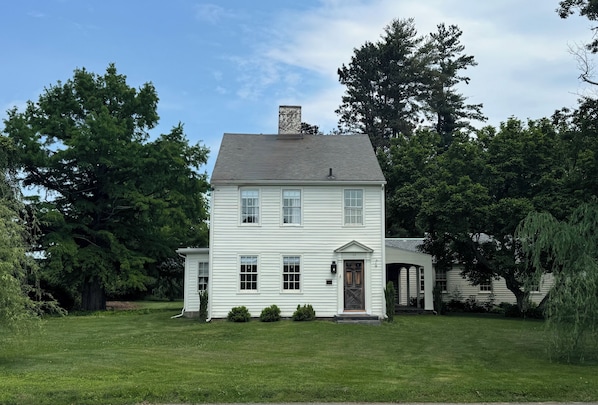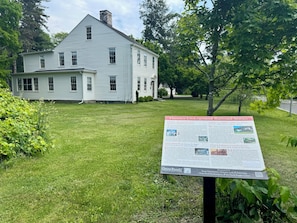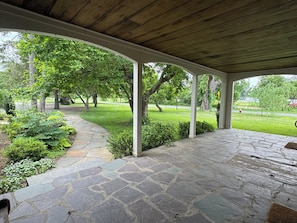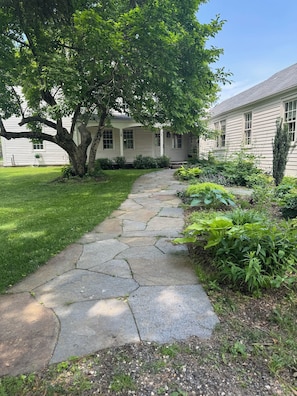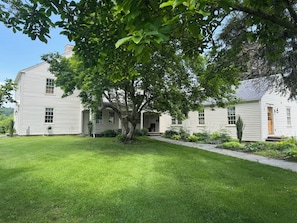You'll have the Farmhouse at the historic Hill-Ross Homestead. Originally built circa 1820 with many original features, comfortable interiors, park like surroundings and a convenient 5 minute walk into downtown Florence. The Farmhouse houses 4 Bedrooms and 2.5 bathrooms. Two king bedrooms, one queen bedroom and one full bed on the third floor, one children's play room, one kitchen, one dining room, one sitting room with adjoining living room.
There are other tenants who share this 2+ acre property and we ask all our guests to be courteous of one another while enjoying its peaceful, park-like setting along the Mill River.
The historic Hill-Ross Farm is listed on the National Historic Registry for being a stop along the Underground Railroad, along with other attributes.
Hill-Ross Homestead features a 19th-century farmhouse (circa 1820)- the home for two important figures in the abolitionist movement, Samuel Lapham Hill and Austin Ross. Samuel Hill purchased the farm in 1841 from the Northampton Silk Company. In 1842, Hill and others founded the Northampton Association of Education and Industry, an organization with strong abolitionist views. The Association chose to locate in the Broughton’s Meadow (now Florence) section of Northampton due to the community’s thriving silk industry. Free laborers, rather than enslaved workers, produced silk, increasing the industry’s popularity among abolitionists. The Association’s property, including the Hill-Ross Farm, provided a store, school, common eating area and living space for its members. Because of the strong presence of the Association and silk manufacturers, Northampton became a haven for African Americans and abolitionists. Northampton proper often served as a stop for fugitive slaves traveling to Canada, and Association members encouraged fugitives’ permanent settlement.
